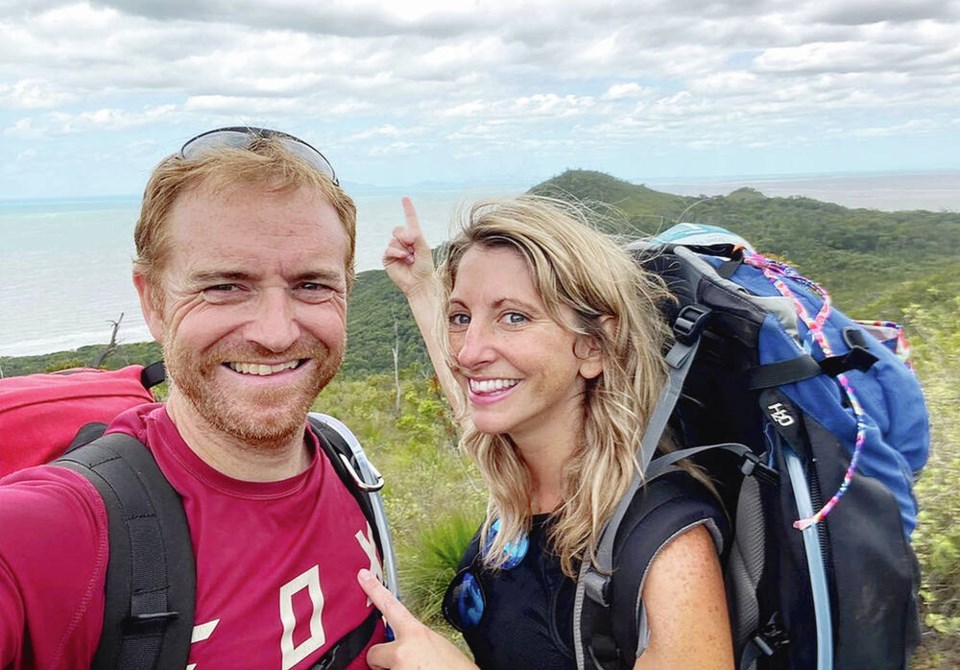A family doctor from the U.K. working in Sidney says his nearly 1,000 patients might have to find a new physician soon after his permanent residency application was rejected because he took the wrong English test.
As B.C. grapples with a family doctor shortage, Health Minister Adrian Dix called the decision “frustrating” and said it’s an example of where federal immigration policy is at odds with B.C.’s attempts to make it easier for foreign doctors to work here.
Dr. Daniel Leach and his wife Tania sold their home in northwest England and, in May of last year, moved to B.C.
Leach began working at the Ocean Pier Medical Centre in Sidney and the couple welcomed their first child in July 2022.
With his two-year work permit set to expire in May 2024, the 45-year-old applied for permanent residency through the federal government’s express entry program, a points-based system for skilled immigrants.
Due to an administrative error on the part of the test centre, Leach was booked in to complete an advanced English test for academics instead of the general language test that’s required for the permanent residency application.
A rejection letter sent to Leach on Oct. 17 by Immigration, Refugees and Citizenship Canada, which was shared with Postmedia News, said: “Your application is rejected for being incomplete and therefore, was not put into processing.”
The letter says only the general language test is acceptable for the application, not the academic test.
“I’m just kind of baffled, really,” Leach said. He said it doesn’t make sense that he would be rejected for completing a higher-level language test.
Leach feels like he’s been dealt a “rejection on a national level,” which is “insulting.”
The decision, he said, flies in the face of B.C.’s efforts to make it easier for foreign-trained doctors to work in the province.
The B.C. government announced last year it would increase the number of foreign-trained doctors who can participate in the Practice Ready Assessment Program from 32 to 96. The program is mandatory for internationally trained doctors who want to be licensed in B.C.
It also comes at a time when B.C. is facing an acute shortage of family doctors, leaving about 800,000 British Columbians without access to primary care.
“It’s in complete contrast to what they’re trying to achieve,” Leach said. “There’s one department trying to promote people coming over and another department making it increasingly difficult and not recognizing who people are.”
Dix told Postmedia News on Tuesday that he will be raising Leach’s case with federal Health Minister Mark Holland later this week when he’s scheduled to talk to him.
“This seems to be way too high a price to pay not just for the doctor himself but for the patients for a mistake made in good faith,” he said.
The federal government has made some improvements to the immigration system, he said, but they “have not matched the very profound improvements we’re making at the provincial level both for doctors, nurses, health science professionals and others.”
Immigration, Refugees and Citizenship Canada said it can’t comment on individual cases due to privacy legislation.
Leach requested an appeal of the decision but that was rejected. He and his wife are also frustrated since their daughter is a Canadian citizen.
“We saw our future being here long-term. That was one of the main reasons for having our daughter here because we wanted to settle and become part of the community.”
Leach said one option open to him is restarting the permanent residency application, something he’s reluctant to do given he’s already sunk thousands of dollars and months of administrative work in the process.
The other is returning to the U.K., “which would be devastating, really, for the local population. I’ve got pretty much 1,000 patients and, as you know, there’s a huge health-care crisis. So they will be left without anybody and with no realistic replacement for me.”



